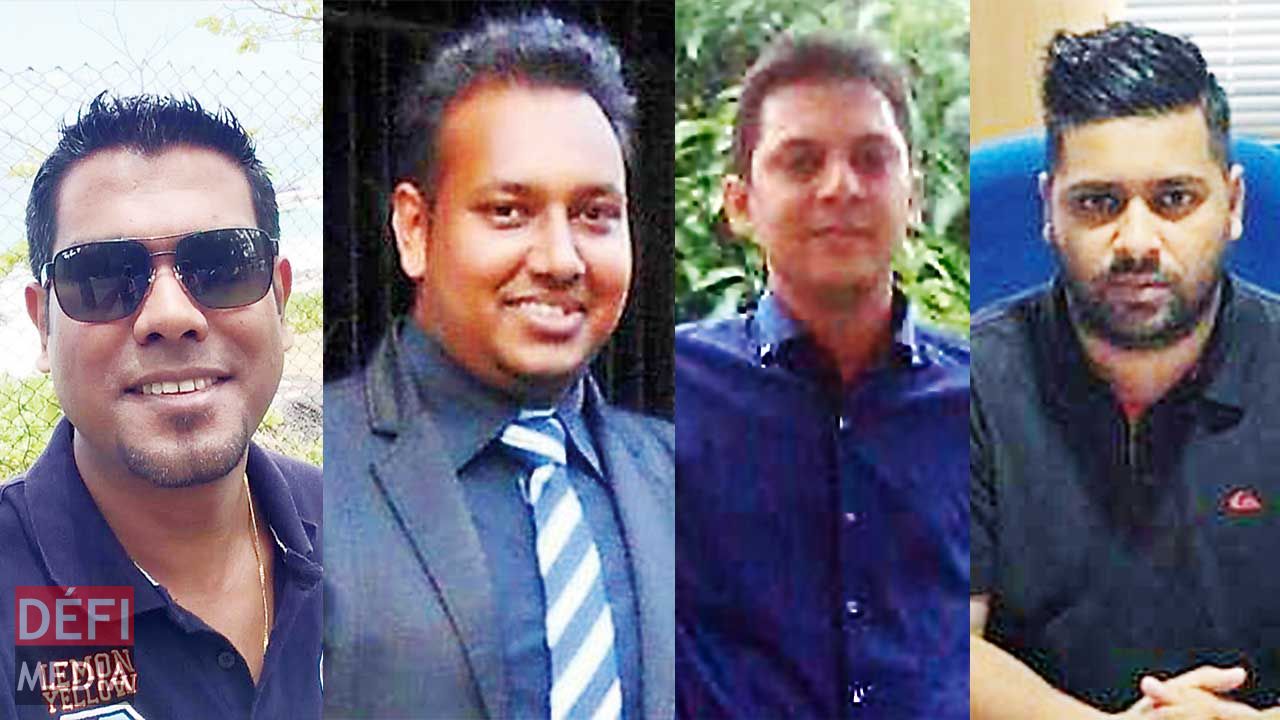
Since last week, there has been a complete upheaval in the education sector. After the introduction of the PSAC, now the secondary level is going to face other challenges. In order to study for the HSC, a student must score five credits at SC exams. While the Minister of Education Leela Devi Dookhun desires to ensure quality in the education system, other proponents perceive it as a degeneration of the educational system. The opinions of our young professionals are divided on the issue.
Publicité
 Shaista Aubdool: “It is justified”
Shaista Aubdool: “It is justified”
SC students study at least seven subjects at SC level, claims Shaista. “The decision for having five credits is justified. Out of seven subjects, the requirement is at least five credits to be allowed to pursue A Level classes. SC students will be more determined in a way. Lowering the requirement was not a good idea, as this will only make SC students less ambitious towards their SC exams. A good grade at SC level is important, especially for the main subjects that will be chosen at HSC level. Performances at A level will suffer if only three credits are required. Everybody has the potential to earn five credits. A few years ago, five credits were the norm for going up to A Level classes. Students can still do it and focus more on obtaining the best results.”
 Shahnawaz Sohoboo: "More dropouts from school"
Shahnawaz Sohoboo: "More dropouts from school"
Shahnawaz is against the introduction of five credits at SC level. According to him, the new admission criteria will create issues in the near future. “Most of the students who attend private schools are average students. It will be difficult for them to get five credits. In this context, several private colleges might stop functioning. Besides, many students will drop out as from SC and this can add to the existing rate of unemployment. With these criteria, the weak and the poor will be affected mostly. It is not in the interest of the population.”
 Deepak Maunthrooa: “It is right to move the curve upwards”
Deepak Maunthrooa: “It is right to move the curve upwards”
We live in a country where our main resource is the human resource; as such, there is nothing wrong in reinstating the five credits system at SC to get access to HSC, says Deepak. “The level has been going down, papers being set as leniently as possible. So, it is right to move the curve upwards in terms of subjects and education as a whole. When building a house we need a solid base; why can’t this be the case for us? With globalisation and changing economies, we should set our goals for 10-15 years ahead and work upon these. To reach those goals and be good at what we want to do, our base needs to be good to hold us for life. A strong career depends on a healthy base.”
He argues that the talk these days is that so’-called weak’ students will suffer. “Why do we have to demean those students from the beginning itself. Let’s give them a chance and see how they fare. Just like students (most of them actually) have been responsible enough to understand that they need to be present at school to be eligible to obtain government subsidy for exams, students can work harder, if they want to, and then they can bag those five credits. We cannot be pessimistic from the start; let’s be positive and wish to see our future generation work better than us.”
It is a fact that we cannot judge a student merely on academic terms; being exam oriented is not the proper solution, adds Deepak. “Our youngsters need to have some kind of balance in their lives so as to mould them into becoming ‘complete’ human beings. Getting involved into activities such as The Duke of Edinburgh’s International Award, debate contests, sport competitions, organisation of school-based activities can help students develop their potential. We should not forget that there can be late-bloomers and the system should cater for these students as well. One very important example is the mindset that the polytechnic stream is for the drop-outs. We need to change this attitude. We shouldn’t underestimate the potential of our youths, whichever stream they wish to choose. Encourage them and help them to flourish. »

 Deepesh Busawah: “It is of utmost importance to reshuffle our cards”
Deepesh Busawah: “It is of utmost importance to reshuffle our cards”
Deepesh argues that the Nine Year Continuous Education has been introduced to ease the pressure of students at an initial phase of their schooling while the introduction of the five credits at SC level makes education become competitive again. “It seems paradoxical, what the government is doing is simply moving the burden from an earlier to a later stage. While many might complain, in good faith, it is very valid to consider the bigger picture. Whether you like it or not, the interest of the government in education is purely to train young people to form part of the work force at a later stage. Making the qualifications become more competitive as students cross levels is very important in the 21st century, as we need more and more qualified people to carry such tasks, where it is absolutely important for them to have both creative and critical thinking skills.”
He further adds that “the SC level is a prerequisite for HSC students. In the employment field, we need more computer engineers or trainers but also more mechanics or plumbers. With modern technologies, it is of utmost importance to reshuffle our cards and the five credits at SC guarantee more skilled labour. “There is an apprehension among those who were admitted to HSC with lesser credits because they might feel that employers, especially the PSC, would favour those with five credits, but it is up to the government to be fair, especially in the current context, where the rate of unemployment is higher than ever. The government has to ensure that those students, who were allowed to go for higher studies with lesser credits, secure a job. The comeback to the five credits though guarantees access to only the best candidates to HSC and then to universities, which further ensures to uplift the level of tertiary education in Mauritius, which has been run to the ground in recent years.”
 Ridwan Fakeerbaccus: “This will be the worst decision”
Ridwan Fakeerbaccus: “This will be the worst decision”
The Mauritian educational system needs to be reviewed and amended accordingly, but we cannot make drastic changes at one go, believes Ridwan. “Consultation with all stakeholders of the educational sector should be organised. Different viewpoints need to be taken into account. There is also the future of these students to be considered.”
He further explains that with this decision, the rate of youth unemployment will increase and the working active population will decrease gradually, as nowadays, mainly the private sector is seeking to employ highly qualified people, as productivity and profits are among their core aims. “The concept of education for all will definitely be discriminating towards lower performing and needy students. Furthermore, channelling more students towards polytechnics is not a solution. What guarantee do we have that they will be employed and does the country need so many skilled workers or are we going to create more unemployment? Thus, this will be the worst decision for the education sector and it will impact the country adversely.”
 Aniis Rostom: “It is wise to consider at least four credits”
Aniis Rostom: “It is wise to consider at least four credits”
Restoring a minimum of five credits at SC Level so as to maintain the education level in Mauritius is a horrible decision, states Aniis. “Over the years, Mauritius has seen an array of elite performers competing against each other, and to whom the minimum requirement is irrelevant. Having a look at the other side of the story however, it is with much sadness that we shall see dreams of slightly less performing individuals being shattered. Excluding General Paper, there is one subsidiary subject and three main subjects to be opted for, which makes up a total of four slots for choices. As such, it is wise to consider at least four credits at SC Level. There are many students who take time to adapt and we also have the late bloomers who will be deprived of a chance to grow due to an additional credit required. While the gap between the rich and the poor is way too large, not providing the educational tool to less performing students, who are generally from less fortunate backgrounds, this will adversely impact the different social levels. The system as a whole requires a drastic review with more career oriented subjects rather than just raw information being fed to students in vague subjects. On the other hand, manual work should simultaneously be professionalized with a fixed remuneration.”

Notre service WhatsApp. Vous êtes témoins d`un événement d`actualité ou d`une scène insolite? Envoyez-nous vos photos ou vidéos sur le 5 259 82 00 !
























![[Blog] Gudhi Padwa : A joyous start to the New Year](https://defimedia.info/sites/default/files/styles/medium/public/gudi_thumb.jpg?itok=BzpMZrT8)






